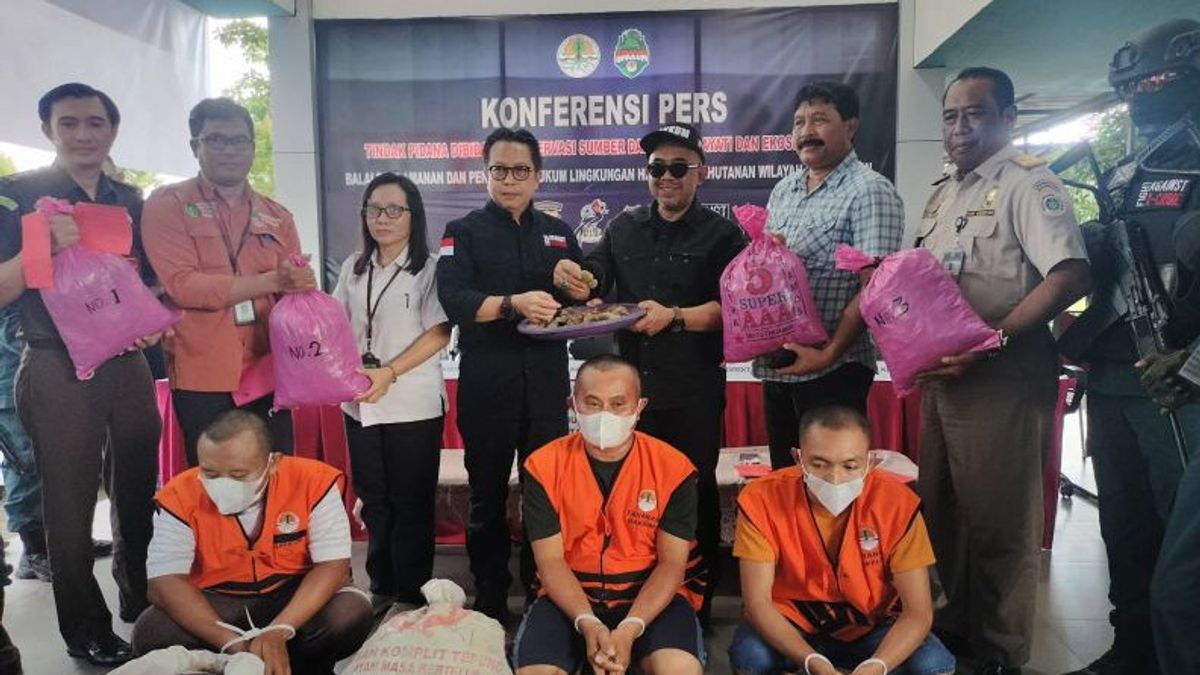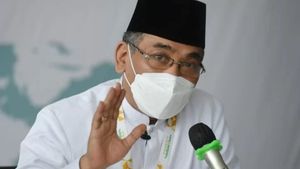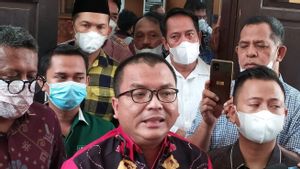JAKARTA - The Ministry of Environment and Forestry (KLHK) has thwarted the circulation and trade of 57 kilograms of pangolin scales in West Kalimantan Province.
A joint team consisting of the Directorate General of Environmental and Forestry Law Enforcement of the Ministry of Environment and Forestry together with the West Kalimantan Regional Police, and the West Kalimantan BKSA arrested three people in the case.
"We have named the three perpetrators (FAP, MR and MND) as suspects and currently they have been detained at the West Kalimantan Police Detention Center for further processing," said KLHK Prevention and Security Director Sustyo Iriyono in a statement reported by ANTARA, Thursday, June 15.
The perpetrators were charged with article 21 paragraph (2) letter D junto article 40 paragraph (2) of Law Number 5 of 1990 concerning Conservation of Biological Natural Resources and Their Ecosystems with a penalty of five years in prison and a fine of Rp. 100 million.
Sustyo explained that the arrests of the three suspects began with public reports on the sale and purchase of pangolin scales in Pontianak City, West Kalimantan, on June 7, 2023, at around 22.00 WIB.
The joint team then followed a white MPV car that passed through Pontianak.
SEE ALSO:
Based on the results of the examination, the joint team found 20 kilograms of pangolin scales stored in four sacks belonging to suspects FAP and MR.
From the statements of the two perpetrators, the Ministry of Environment and Forestry together with the West Kalimantan Regional Police pursued a trade network of pangolin scales located in the Fisherman Hamlet of Setalik Village, Sejankung District, Sambas Regency.
The joint team then secured MND (owner and collector) along with evidence in the form of 37 kilograms of pangolin scales.
Director General of Law Enforcement of the Ministry of Environment and Forestry, Rasio Ridho Sani, said pangolins have an important role in maintaining the balance of natural ecosystems, because these animals eat termites, ants, and other insects.
"The action against perpetrators of protected wildlife and plant crimes is the government's commitment to protect the wealth of biodiversity and security of the Indonesian ecosystem," said Rasio.*
The English, Chinese, Japanese, Arabic, and French versions are automatically generated by the AI. So there may still be inaccuracies in translating, please always see Indonesian as our main language. (system supported by DigitalSiber.id)













